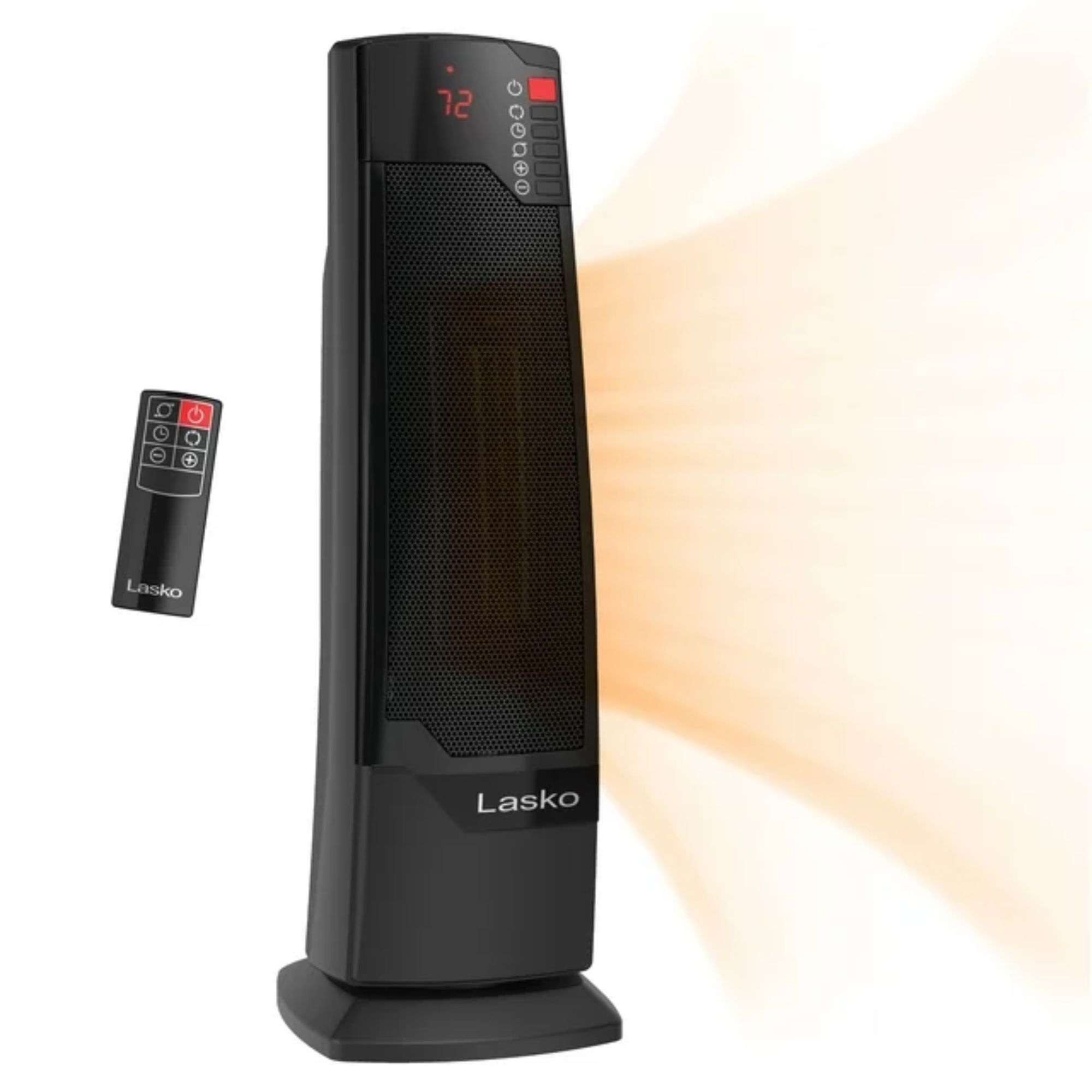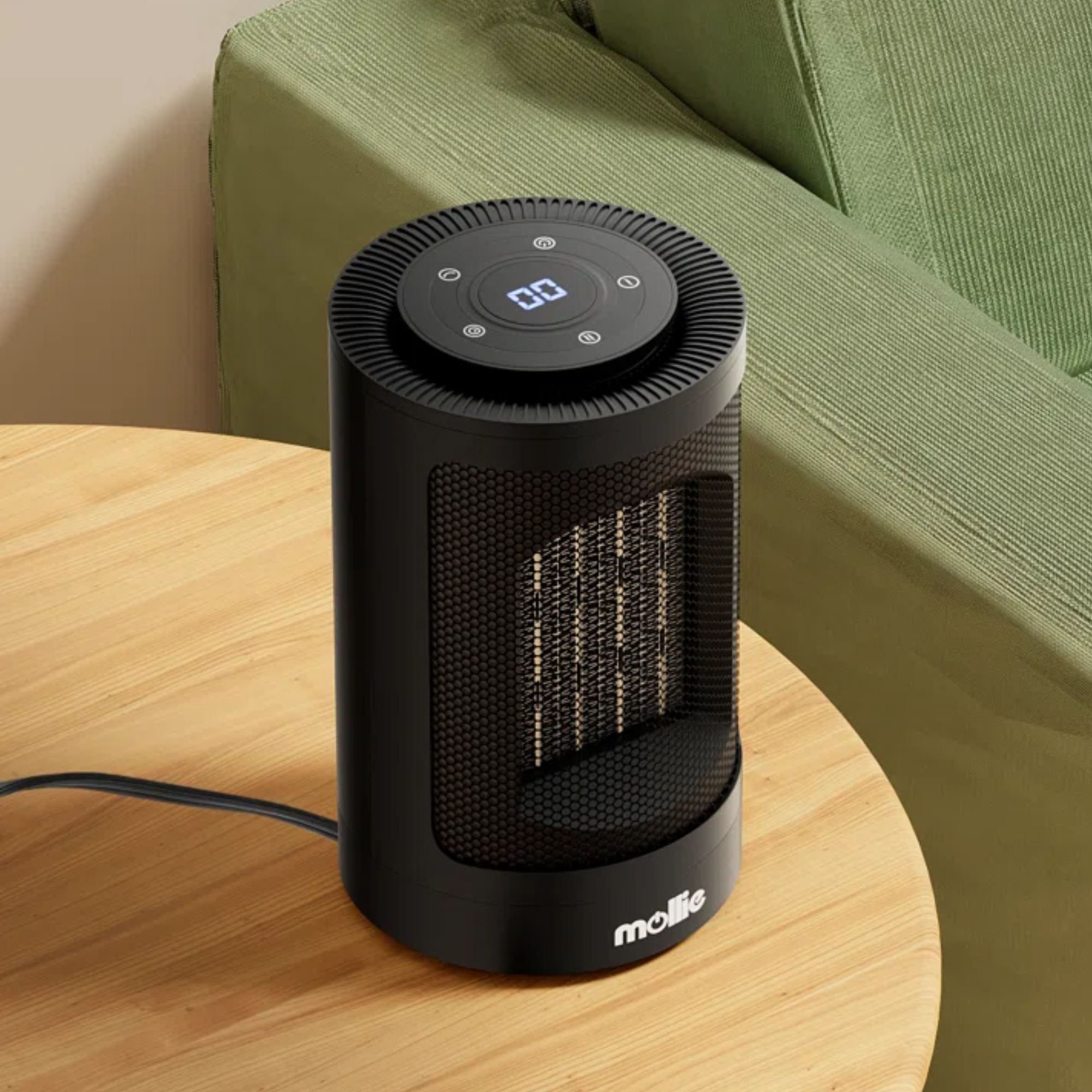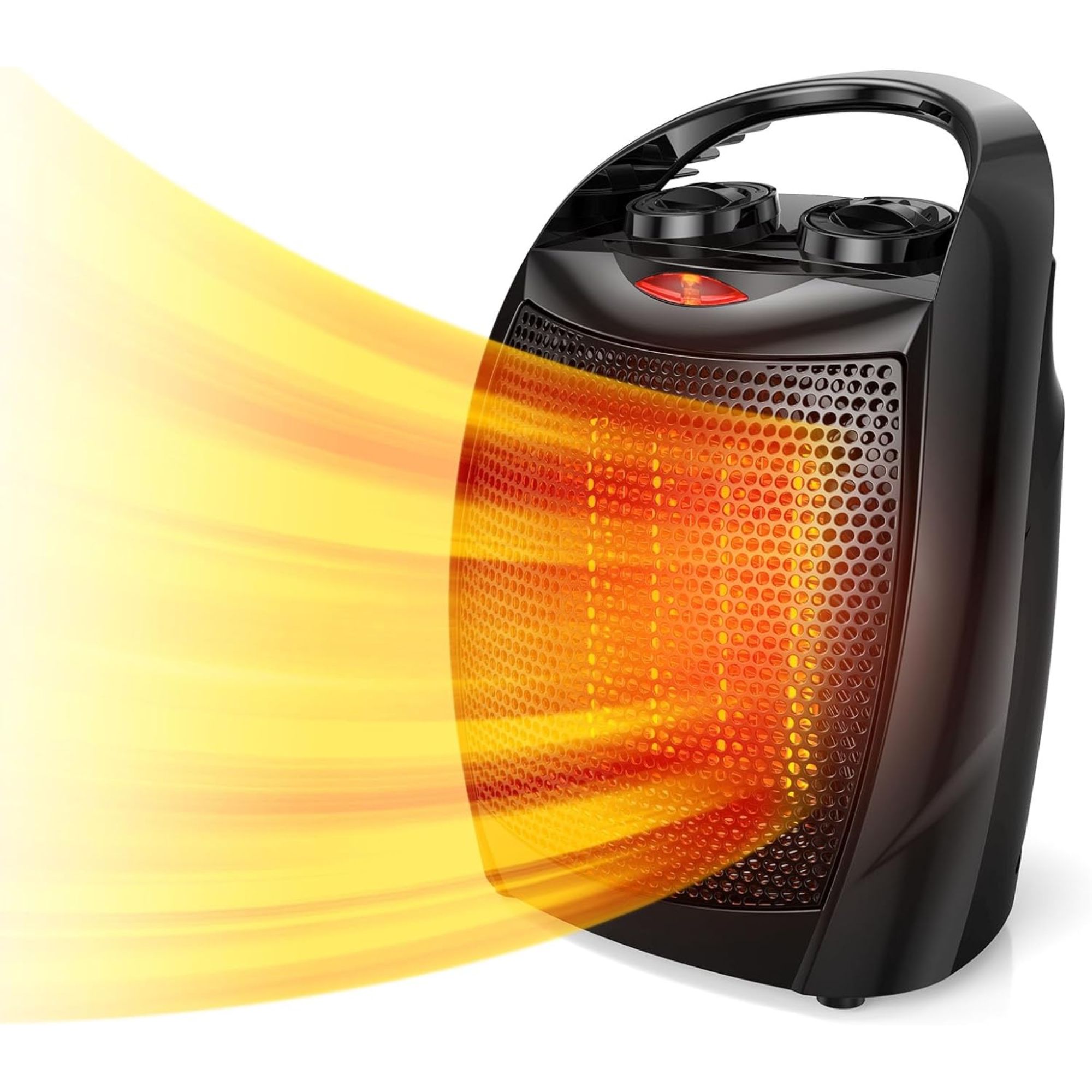Can I leave a space heater on overnight? This is what experts say
Can you keep your space heater plugged in overnight? We asked HVAC experts for their top safety tips


Design expertise in your inbox – from inspiring decorating ideas and beautiful celebrity homes to practical gardening advice and shopping round-ups.
You are now subscribed
Your newsletter sign-up was successful
Want to add more newsletters?

Twice a week
Homes&Gardens
The ultimate interior design resource from the world's leading experts - discover inspiring decorating ideas, color scheming know-how, garden inspiration and shopping expertise.

Once a week
In The Loop from Next In Design
Members of the Next in Design Circle will receive In the Loop, our weekly email filled with trade news, names to know and spotlight moments. Together we’re building a brighter design future.

Twice a week
Cucina
Whether you’re passionate about hosting exquisite dinners, experimenting with culinary trends, or perfecting your kitchen's design with timeless elegance and innovative functionality, this newsletter is here to inspire
As nighttime temperatures drop, a portable heater may seem like the perfect way to maintain a cozy sleep and living environment. However, it's important to think twice before leaving these heating systems unattended.
When trying to achieve the right temperature over winter, you may be wondering if it's a good idea to leave your heating on overnight – especially when it's as simple and cost-effective as plugging in a space heater. But is it safe to leave a portable heater on for prolonged periods of time?
Below, our heating experts explain their safety concerns and share their tips for using this heating type overnight. Keep reading to find out how to make your heating more efficient and safe for a stress-free and comfortable night's sleep.
Can I leave a space heater on overnight?
'Generally, it is not recommended to leave a space heater on while you sleep,' explains Josh Mitchell, HVAC technician and the owner of Air Conditioner Lab. 'The primary concerns are safety risks such as fire hazards, potential overheating, and carbon monoxide poisoning (in the case of fuel-burning space heaters). If you must use a space heater overnight, there are several safety measures to consider.'
We've detailed the space heater mistakes to avoid in our dedicated guide.

Josh Mitchell is, a plumbing expert and HVAC technician and the owner of Air Conditioner Lab and Plumbing Lab
1. Choose the right heater
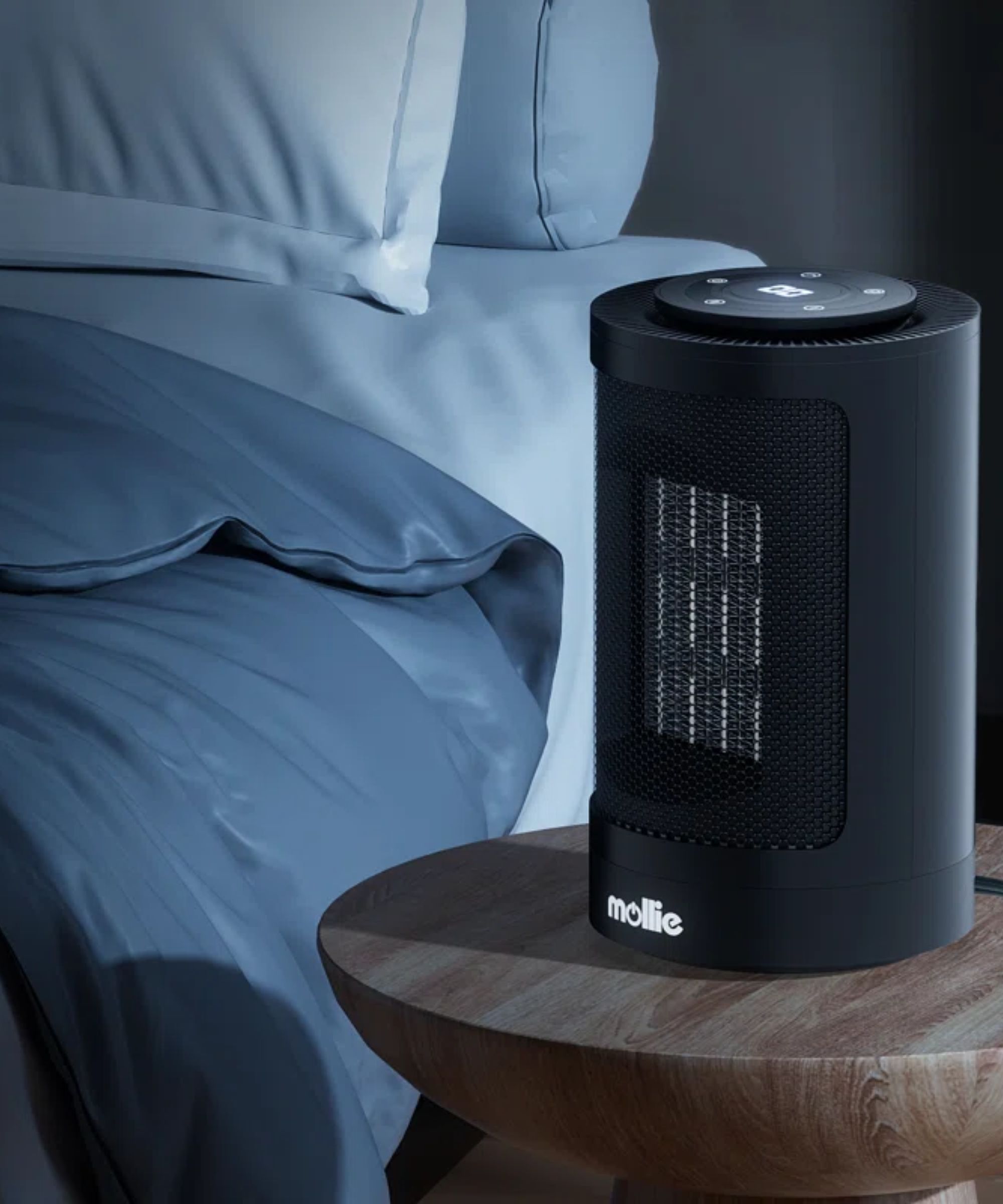
First and foremost, look for the best type of space heater for safety, heating, and cost efficiency.
'Many modern space heaters come with safety features such as automatic shut-off if they get too hot or tip over. This feature helps prevent overheating and reduces the risk of fires,' says Josh Mitchell.
Design expertise in your inbox – from inspiring decorating ideas and beautiful celebrity homes to practical gardening advice and shopping round-ups.
Additionally, 'Consider using a space heater that has a thermostat,' recommends Alan Houghton and Gordon Chalk, Managing Directors at Next Level Underfloor Heating And Screed Solutions. 'This allows you to specify a specified temperature, which reduces the risk of overheating.
'Also, look for a space heater with safety certificates from reputable organizations. This assures that the appliance has been thoroughly tested for safety requirements.'
2. Proper placement

The placement of your heater is equally important in ensuring its safety overnight. Set the heater on a sturdy, level surface made from non-flammable materials.
'Ensure that the space heater is placed at least three feet away from any flammable objects, such as curtains, blankets, paper, or furniture,' advises Justin Bohannon, owner of Affordable Solutions HVAC & Electrical. 'This distance minimizes the risk of these items catching fire from the heater's heat.'
Also, allow for adequate ventilation by leaving at least three feet of space around the heater.
3. Install smoke and carbon monoxide detectors
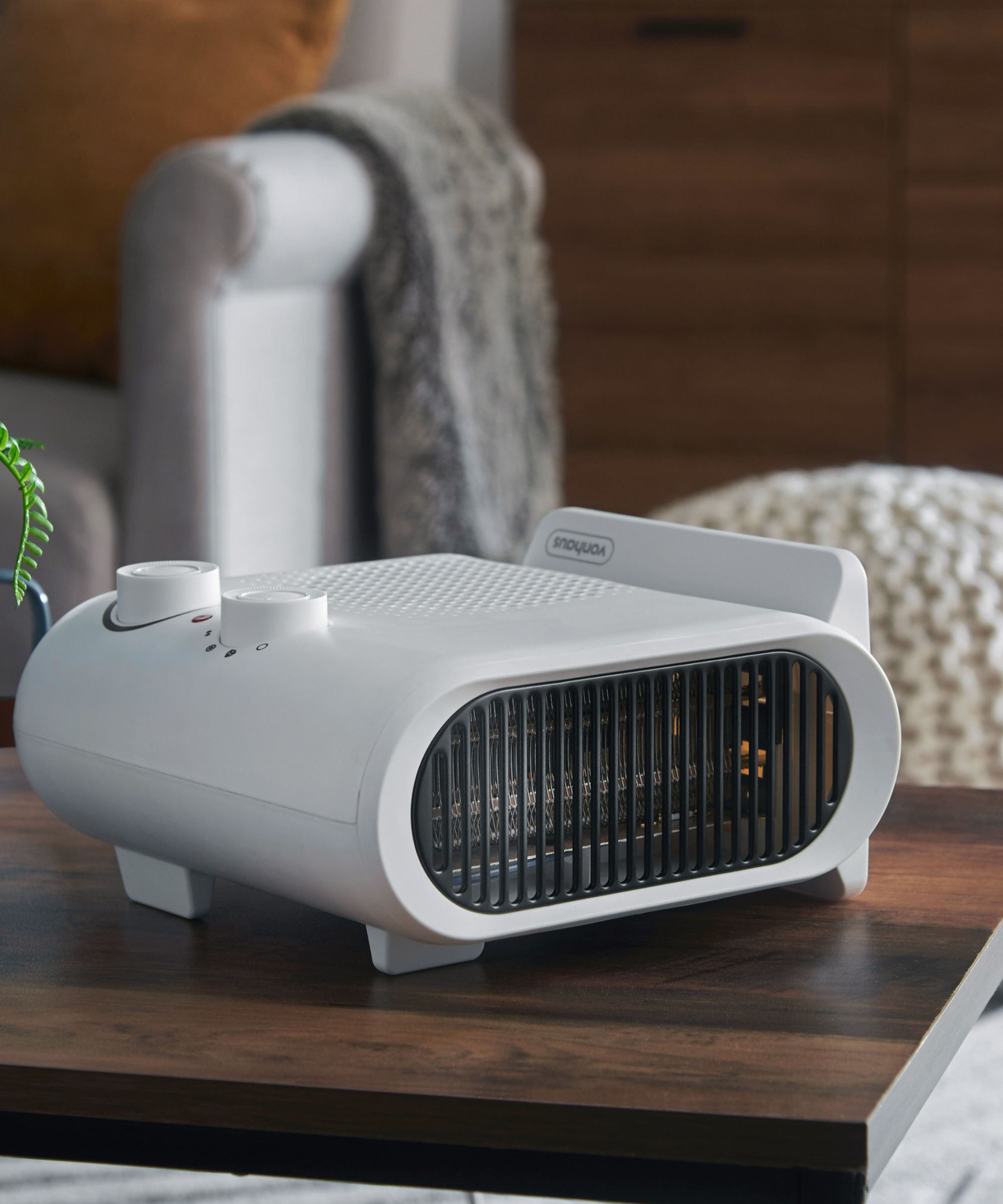
'Ensure that your home is equipped with working smoke and carbon monoxide detectors, especially if you're using a fuel-burning space heater,' advises Josh Mitchell.
This will warn you if your heater malfunctions or if there is a carbon monoxide buildup, which is essential while you are asleep and unable to monitor the heater.
You can find these three battery-operated smoke and carbon monoxide detectors at Amazon.
4. Use a dedicated circuit

'Connect the space heater directly to a wall socket and avoid using extension cables,' advise Alan Houghton and Gordon Chalk. 'This helps to avoid electrical problems and decreases the danger of overheating.'
5. Perform regular heater maintenance
Regular maintenance, including cleaning the heater's components and ensuring the cord and plug are in good condition, is essential. You should inspect the heater for any signs of damage or wear, like frayed cords, loose connections, or a malfunctioning thermostat.
If the cord needs replacement, use only the manufacturer-recommended replacement to maintain the heater's safety standards.
Understanding the risks of using a space heater overnight
Fire hazards: Space heaters are a leading cause of house fires during the winter. They can easily ignite combustible materials like curtains, bedding, or furniture if left too close to them.
Overheating: Some older or lower-quality space heaters may lack adequate overheating protection, posing a risk of the unit getting too hot and potentially causing a fire.
Carbon monoxide poisoning: For space heaters that burn fuel (like propane or kerosene heaters), there's a risk of carbon monoxide buildup, especially in poorly ventilated areas.
Alternatives
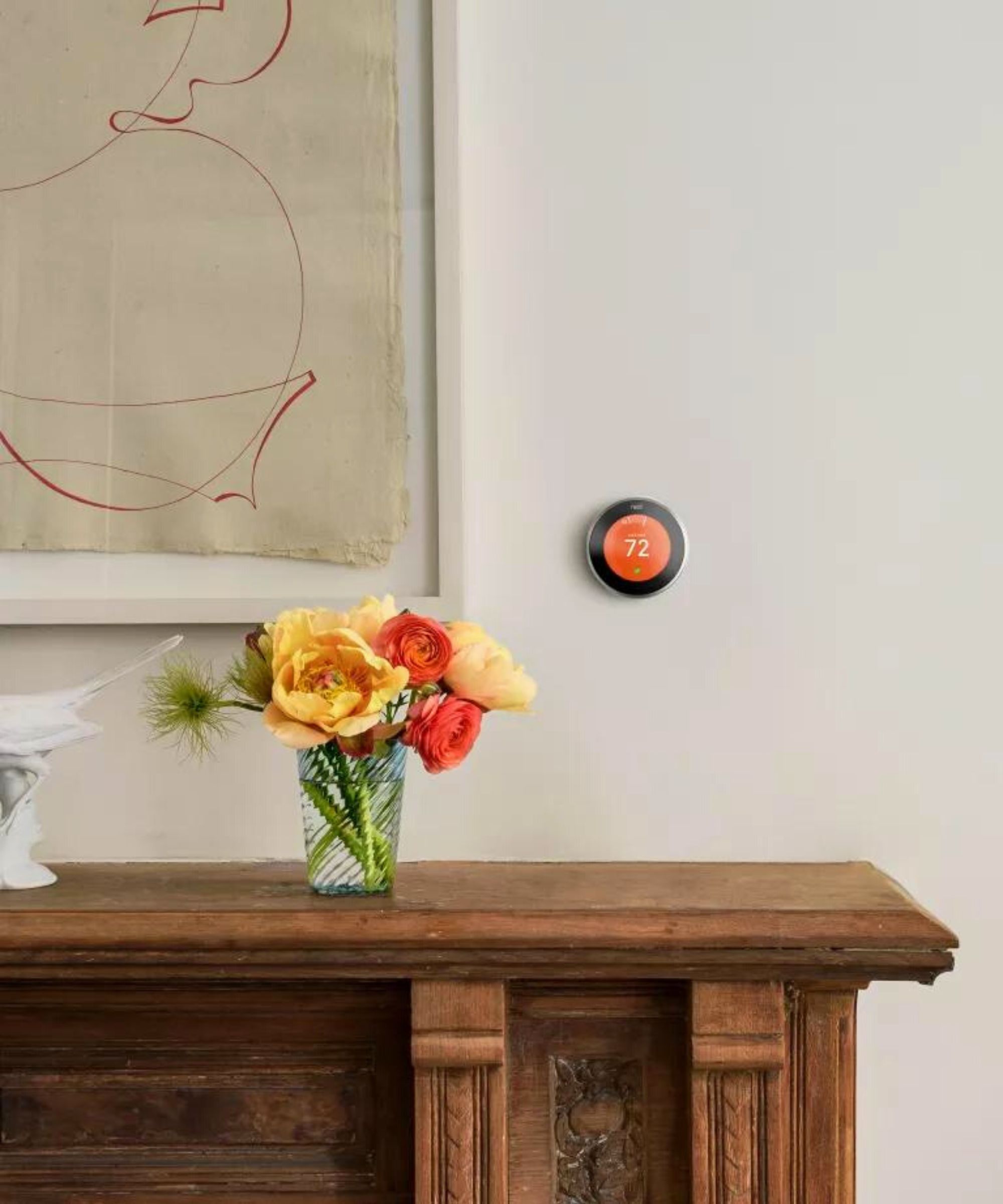
For continuous overnight heating, there are a number of alternatives to control
your home's temperature more effectively and safely.
'Instead of space heaters, use your central home heating system for overnight warmth,' advises Rinkesh Kukreja, founder of Conserve Energy Future. 'Most modern furnaces and boiler systems have safety features that reduce fire risks compared to portable space heaters.
'For stability and efficiency, programmable thermostats can help regulate overnight temperatures automatically. Setting the heat a few degrees lower at night while you sleep also saves on energy costs.'
Electric blankets that are designed with safety features and can also provide a consistent source of warmth without the same level of risk associated with space heaters. You can find this electric blanket with a heater timer and auto-shut off at Amazon.
Finally, to heat your house when your furnace goes out, remember that a well-insulated home will also retain warmth, reducing the need for potentially hazardous heating devices. Invest in insulation such as weather stripping, draft stoppers, and wall insulation.
While it may be possible to leave a space heater on overnight under certain conditions, it is inherently safer to turn it off and employ other heating methods. Alternatively, consider setting the heater on a timer to warm the room before you wake up. This will help prevent the heater from overheating and reduce the risk of fire.
If you are using a space heater, remember to always follow the manufacturer's guidelines. Additionally, leaving the heater in an unattended space, especially overnight, may void the warranty or pose an increased risk.

Lola Houlton is a news writer for Homes & Gardens. She has been writing content for Future PLC for the past six years, in particular Homes & Gardens, Real Homes and GardeningEtc. She writes on a broad range of subjects, including practical household advice, recipe articles, and product reviews, working closely with experts in their fields to cover everything from heating to home organization through to house plants. Lola is a graduate, who completed her degree in Psychology at the University of Sussex. She has also spent some time working at the BBC.
